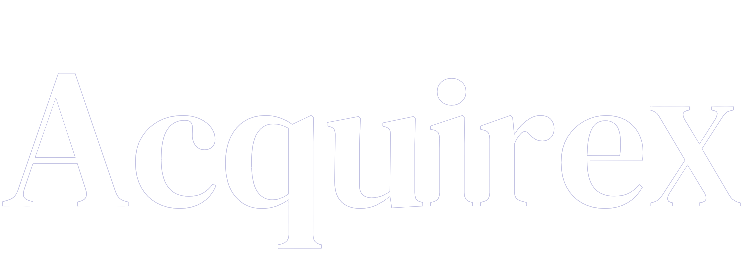Content marketing has evolved dramatically over the past decade, driven by the rise of digital platforms and the growing importance of engaging, high-quality content. As businesses strive to stay ahead of the competition, many are turning to outsourcing as a strategy to access specialized skills, scale their efforts, and reduce costs. However, the future of content marketing outsourcing is poised for even greater transformation with the integration of Artificial Intelligence (AI). AI is not just automating routine tasks; it’s reshaping how content is created, distributed, and optimized, making it a critical component of the future of outsourcing in content marketing.
The Role of AI in Content Creation
AI has already made significant strides in content creation. Tools like GPT (Generative Pre-trained Transformer) can generate blog posts, social media updates, and even video scripts with minimal human input. These AI-driven content generators can analyze existing content, identify trends, and produce new material that aligns with a brand’s voice and messaging. For businesses that outsource their content marketing, AI can offer a cost-effective and efficient way to generate large volumes of content quickly.
However, the integration of AI into content creation is not without challenges. While AI can produce content at scale, the quality and creativity of that content still require human oversight. AI-generated content can sometimes lack the nuance, emotional resonance, and originality that human writers bring to the table. As a result, the future of content marketing will likely see a hybrid approach, where AI handles the bulk of content production while human writers focus on refining and adding a creative touch.
Outsourced content marketing agencies that leverage AI will need to strike a balance between automation and human expertise. By doing so, they can offer their clients the best of both worlds: high-quality content that is produced efficiently and at scale.
AI in Content Distribution and Optimization
Beyond content creation, AI is revolutionizing how content is distributed and optimized. AI-powered tools can analyze audience behavior, preferences, and engagement patterns to determine the best times to publish content, the most effective channels for distribution, and the optimal formats for different audiences. This data-driven approach allows outsourced content marketing teams to create highly targeted and personalized content strategies that maximize reach and engagement.
For example, AI can analyze social media trends to identify which topics are gaining traction and suggest content ideas that are more likely to go viral. It can also track how different pieces of content perform across various platforms and provide insights into what types of content resonate most with specific audience segments. By leveraging AI, outsourced content marketing agencies can offer their clients a level of precision and effectiveness that would be difficult to achieve manually.
Moreover, AI can continuously monitor and adjust content strategies in real-time. If a particular piece of content isn’t performing as expected, AI tools can suggest changes or automatically tweak elements like headlines, images, or calls to action to improve results. This level of agility is particularly valuable in outsourced content marketing, where agencies must deliver consistent results to justify their partnerships.
The Impact of AI on Content Marketing Costs
One of the primary reasons businesses outsource content marketing is to reduce costs. AI can further drive down these costs by automating many aspects of content production and distribution. For instance, AI can generate content drafts, schedule social media posts, and even respond to customer inquiries with minimal human intervention. This automation reduces the need for large in-house teams or extensive manual labor, making content marketing more affordable for businesses of all sizes.
However, it’s important to recognize that while AI can lower costs, it also requires an initial investment in technology and training. Outsourced content marketing agencies that want to stay competitive in the future will need to invest in AI tools and ensure their teams are skilled in using these technologies effectively. This investment will pay off in the long run, as agencies that harness the power of AI will be able to offer more efficient, data-driven services to their clients.
Ethical Considerations in AI-Driven Content Marketing
As AI becomes more integrated into content marketing, ethical considerations will come to the forefront. Issues such as data privacy, content authenticity, and transparency are critical in maintaining consumer trust. For example, consumers may be concerned about how their data is being used to personalize content or whether AI-generated content is clearly identified as such.
Outsourced content marketing agencies must navigate these ethical challenges carefully. They should prioritize transparency with their clients and audiences, clearly communicating how AI is used in content creation and distribution. Additionally, agencies should implement strong data privacy practices and ensure that AI tools are used responsibly.
The future of AI in content marketing also raises questions about the role of human creativity and the potential for AI to replace human jobs. While AI can automate many tasks, it cannot replicate the creativity, empathy, and storytelling abilities of human writers. As such, the most successful content marketing strategies will likely involve collaboration between AI and humans, with AI handling data-driven tasks and humans focusing on creative and strategic elements.
Looking Ahead: The Future of Outsourcing in Content Marketing
The future of outsourcing in content marketing will be shaped by the continued integration of AI. As AI technology advances, we can expect to see even more sophisticated tools that enhance every aspect of content marketing, from creation and distribution to optimization and analysis. Businesses that outsource their content marketing will benefit from these advancements, gaining access to cutting-edge technology and expertise that can drive their content strategies forward.
However, the human element will remain essential in content marketing. AI can handle many tasks, but it cannot replace the creativity, intuition, and strategic thinking that human marketers bring to the table. As such, the future of content marketing will likely involve a partnership between AI and humans, with AI taking on routine tasks and humans focusing on the creative and strategic aspects of content marketing.
Outsourced content marketing agencies that embrace AI will be well-positioned to deliver more effective, efficient, and personalized content strategies for their clients. By leveraging the power of AI while maintaining a strong focus on human creativity and ethics, these agencies can help businesses stay ahead in the ever-evolving landscape of content marketing.


